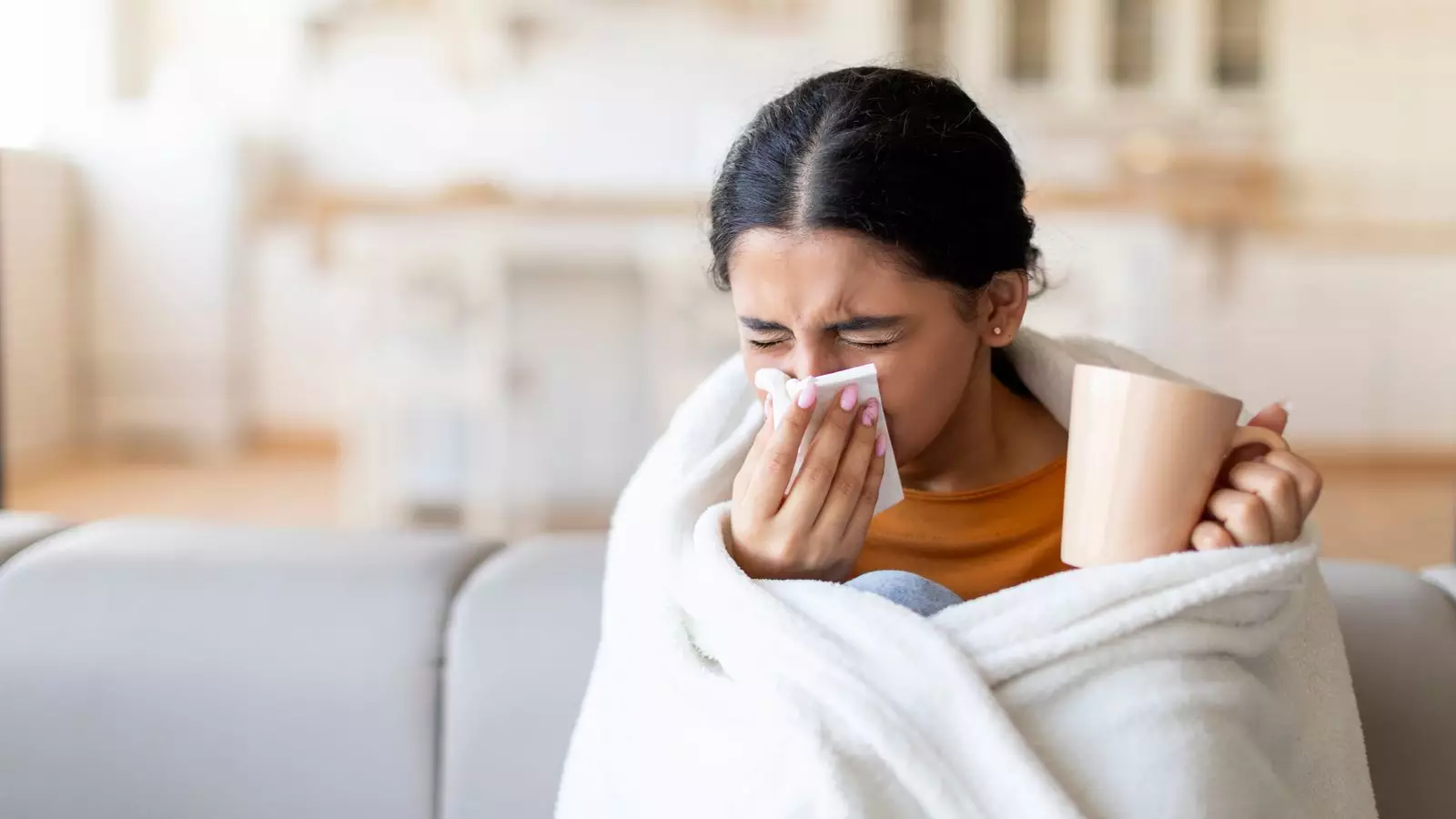The health landscape in England has encountered a significant challenge with a staggering 70% spike in hospitalizations due to flu within a single week, according to the NHS. With an average daily admission rate of 1,861 flu patients, a reflection of the current spike from just 1,099 the week prior, and starkly higher than the 402 patients during the same period last year, the NHS is sounding alarms. This increase in flu cases notably affects children aged 5 to 14, who currently display the highest infection rates, as reported by the UK Health Security Agency. However, with the approaching holiday season, experts anticipate a rise in flu cases among adults, particularly as schools and nurseries close, leading to increased indoor gatherings.
The current health crisis is further complicated by the simultaneous increase of other seasonal viruses including norovirus and respiratory syncytial virus (RSV). The NHS data reveals that approximately 837 beds were occupied last week by patients exhibiting norovirus symptoms—indicating a 10% increase from the previous week and a significant rise of 64% from last year. Similarly, RSV cases in children have seen an uptick, with an average of 152 young patients hospitalized daily, up from 142 the week before and considerably more than in the prior year. Contrastingly, COVID hospitalizations have slightly decreased, with 1,343 beds occupied compared to 1,390.
Many health officials are expressing concerns about a potential “quad-demic,” a term used to describe the simultaneous circulation of four common viruses during the winter months. According to GP David Lloyd, the risk of complications becomes more pronounced as individuals congregate indoors, allowing for greater virus transmission.
In response to this alarming situation, health authorities are emphasizing the need for vaccinations. The NHS provides vaccines for flu, COVID, and RSV, particularly targeting vulnerable groups such as individuals aged over 65, pregnant women, and those with specific health conditions. Vaccination clinics have expanded in reach, with jabs available at various venues, including pharmacies, Christmas markets, and supermarkets. The urgency of getting vaccinated cannot be overstated; Professor Sir Stephen Powis of NHS England underscored this by stating, “With one week left to book your vaccine, I cannot stress enough the importance of getting booked in to protect yourself against serious illness and to avoid ‘festive flu’.”
Health Secretary Wes Streeting has echoed this message, urging individuals to safeguard themselves and their loved ones by seeking vaccination before it’s too late. This call to action is crucial not only for personal health but also for the well-being of the healthcare system, which is already under strain from rising attendances in emergency departments.
The ongoing surge in seasonal illnesses is causing significant strain on healthcare facilities. Recent NHS statistics reveal that November marked the busiest month on record for Accident & Emergency departments in England, with over 2.31 million visits. Unfortunately, the percentage of patients receiving treatment within the target time of four hours has dipped slightly, with figures dropping from 58.1% in October to 57% in November. Furthermore, ambulance handovers have faced delays, with the average handover time now exceeding 42 minutes—up from about 39 minutes during the same period last year.
While it’s encouraging to observe that the overall treatment waiting list has seen a slight decrease, with numbers falling from 7.57 million in September to 7.54 million in October, the situation remains tenuous. Experts warn that as infections rise, maintaining timely access to care will become increasingly difficult, particularly if more patients require hospitalization.
As England navigates this tumultuous health period, the integration of vaccination initiatives alongside public health measures becomes paramount. Individuals must actively participate in their health decisions—seeking vaccinations to protect themselves and their communities from the impending risks posed by this year’s viral confluence. The road ahead may be challenging, but with collective vigilance and proactive health measures, it is possible to mitigate the impact of this quad-demic and ensure the safety of all citizens during this critical time.


Leave a Reply